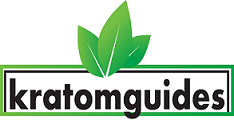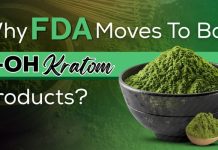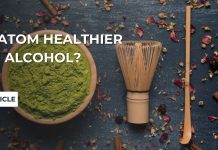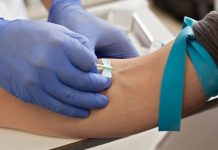Addiction is a chemical dependency on a certain drug. An addict is someone whose body has developed a physical and/or psychological tolerance to drugs. He cannot survive without the presence of that specific drug in their system.
Everyone can be affected by addiction, no matter what their background is. No one is immune to addiction, regardless of age, race, gender, or social status.
Addiction, according to the National Institute on Drug Abuse (NIDA), is a primary, chronic illness of brain reward, motivation, memory, and associated circuits. In other words, addiction manifests as a result of changes in the brain that occur due to drug abuse.
Addiction is not simply a social problem or a criminal issue. It is a medical problem that must be treated as such.
Symptoms of Drug Addiction
The American Psychiatric Association (APA) has outlined nine symptoms that can help determine whether or not someone is suffering from addiction. These are the following:
- The craving for drugs
- Drug-seeking behavior to obtain drugs
- Loss of control in limiting the intake of drugs
- Impaired ability to stop using drugs once started
- Spending a great deal of time obtaining the substance, using it, and recovering from its effects
- Giving up important activities because of drug abuse
- Continuing to use drugs even though there is evidence that they are damaging physical health or mental health
- Frequently engaging in drug-taking despite negative consequences (tolerance and withdrawal)
The last two symptoms (tolerance and withdrawal) are the most common indicators of addiction.
Tolerance is when the addict needs to take more and more of a substance to achieve the desired effects, which implies that the brain has become accustomed to its presence and requires higher levels to maintain normal function.
Withdrawal symptoms are the body’s reaction to the sudden absence and can be very unpleasant. They can range from mild discomfort to full-blown seizures and even death.
So now that we know what drug addiction is, let’s look at what happens in the addict’s mind after they’ve recovered.
The Battle between the Conscious and Unconscious
Drug addicts are constantly fighting a battle between their conscious and unconscious minds. The conscious mind is the part of the brain that controls decision-making and rational thinking. The unconscious mind is in charge of impulses, emotions, and desires.
When an addict is using drugs, the unconscious mind is in control. The conscious part of the brain is essentially put to sleep by the mind-altering effects of drugs. As a result, addicts become submissive to their compulsions and will continue to seek more drugs regardless of the consequences.
The desire for drugs can be so strong that addicts’ primary care comes secondary, even when it endangers their lives.
Once an addict has successfully defeated their addiction, however, the conscious part of the brain becomes more potent than ever before. The will to get better eventually becomes more significant than the desire for drugs, which is why addicts can quit using once and for all.
This does not mean that addicts are no longer affected by their unconscious minds. The impulses, desires, and emotions are still there. However, addicts now can control them and make rational decisions instead of being handled by them.
In short, drug addiction is a mental disorder that causes compulsive drug seeking and use, despite harmful consequences. It is a medical problem that must be treated as such. Addicts are not simply morally flawed people who should be scorned for their actions. They are not criminals. They are sick patients in need of treatment and understanding, just like anyone else dealing with a medical issue.
Recovery
It takes time and effort to overcome an addiction. It involves dealing with the physical addiction to drugs, adjusting to life without them, and learning to better deal with stress and hardship.
Here are some things that addicts can do to increase their chances of recovery:
Cognitive Behavioral Therapy (CBT)
It helps patients understand what caused their addiction and teaches them new ways of thinking and behaving to avoid relapse.
Motivational Enhancement Therapy (MET)
This focuses on the patient’s desire to change their behavior and helps them find internal motivation.
Contingency Management (CM)
Patients receive rewards for staying sober, such as gift cards, vouchers, or cash.
Family Therapy
This helps addicts and their families better understand the disease of addiction and how to best support the addict’s recovery.
Support Groups
These provide a safe place for addicts to share their experiences and receive support from others going through the same thing.
Inpatient Treatment Centers
Addicts are given a place to live where others surround them in recovery. Inside these drug addiction treatment centres they can focus on getting better without outside distractions, which can cause relapse.
These are a few typical methods that addicts cope with their addictions and attempt to rehabilitate. No one way works best for everyone, so it is essential to find what works best for you and stick with it.
We must understand addiction if we want to help those suffering from it. Recovery is not an easy process, but it can be done. All addicts need is support and understanding, which they deserve more than anything else.
Relapse
Relapse is the act of falling back into old habits, especially addiction. Although many addicts can stay sober for long periods after they quit using drugs, there is always a chance that they can relapse at any moment.
There are many reasons why this happens:
Lack of coping skills
Once an addict quits using drugs, they no longer can cope with stress and hardship in the same way they did when they were using. This can lead to a relapse if they cannot find other ways to cope.
Environmental triggers
These things in the environment can remind an addict of drugs and cause them to want to use again.
Psychological factors
Such as stress, anxiety, boredom, and loneliness can all lead to a relapse.
It is crucial for addicts to be aware of these triggers and do their best to avoid them. If they cannot prevent them, they need to have a plan in place for how to deal with them if they start to feel the urge to use them again.
Relapse can be scary for many addicts, but it does not mean that their recovery was for nothing. One relapse does not necessarily lead to another or indicate that you will never be able to quit using drugs. What matters is you must keep trying and do what you need to stay calm.
Relapse prevention plan
This document contains a list of things that an addict can do to avoid relapse. It includes avoiding triggers, staying connected to support groups and therapy, and managing stress and anxiety.
Addicts need to regularly review their relapse prevention plan and make changes as required. This way, it can be adapted to any situation.
Conclusion
Addiction does not define you; you define addiction. It is important to remember that you are an addict no matter what happens, but it does not have to control your life. You can restart your life again by quitting using drugs and getting involved in support groups or therapy. You might encounter some setbacks along the way, but don’t let these define you either – continue on the path you already traveled.
Everyone’s path to recovery is different, so whatever method you choose to deal with your addiction is the right one for you. Remember that no decision is permanent, and you can always change your mind and try something else if what you’re currently doing isn’t working out.
There are many ways to recover from addiction, but they all require hard work and dedication. Don’t give up – you can do it!









Serious?? I’ve never heard such information before. It’s not the first time i review this product and I’m rather experienced user. I compared to the article from COMPACOM and no doubt they provide much more relevant information.